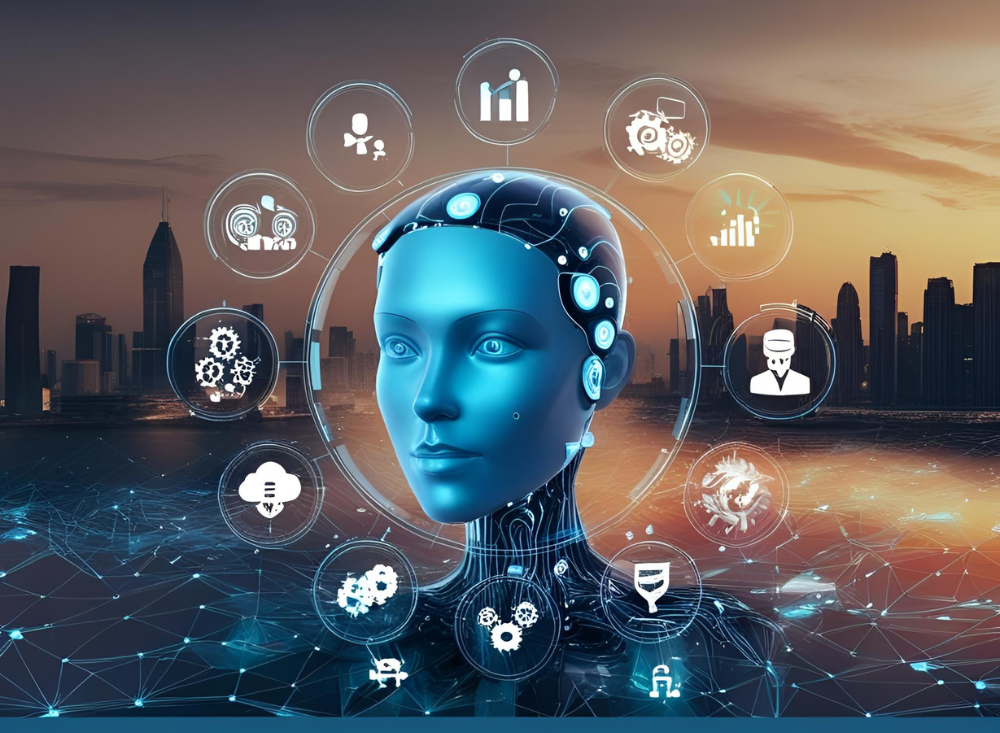
Artificial Intelligence (AI) is no longer a futuristic concept in marketing — it’s now an integral part of the modern marketer’s toolkit. As we move deeper into 2025, AI continues to redefine how businesses engage customers, personalize experiences, and optimize campaigns in real time.
This guide explores the top AI marketing predictions for 2025, the emerging trends shaping its evolution, and how businesses can future-proof their strategies to stay competitive in a tech-driven landscape.
How AI Drives Real-Time Personalization in Marketing
One of the most significant advancements in AI marketing is real-time personalization. Consumers no longer respond to generic messaging — they expect personalized, context-aware content delivered at the right moment.
✅ Instant Adaptation to User Behavior
AI now enables brands to respond in the moment by analyzing user actions — clicks, scrolls, time on page — and adapting content or offers dynamically.
Examples include:
- Real-time product recommendations based on live browsing behavior.
- Chatbots adjusting tone and recommendations based on user sentiment.
- Email content that updates at the time of opening, not just sending.
Result: Personalized interactions that feel intuitive and tailored, increasing engagement and conversion.
✅ Enhancing Customer Journeys with AI
AI connects the dots across touchpoints — social, search, web, email, and more — crafting seamless experiences throughout the customer journey.
Key benefits:
- Predictive content delivery based on past behaviors.
- AI-curated customer journeys using intent signals.
- Trigger-based nurturing sequences that evolve over time.
Takeaway: Marketing in 2025 isn’t just automated — it’s intelligently orchestrated in real time.
AI as a Strategic Partner in Marketing
Gone are the days when AI was only used to automate repetitive tasks. Today, AI acts as a strategic partner, empowering marketers to make smarter decisions faster.
✅ Transforming Marketing Departments into Innovation Hubs
AI is empowering marketers to become innovation leaders by:
- Generating data-driven insights that guide high-level strategy.
- Testing campaign variants at scale with predictive success scoring.
- Automating A/B and multivariate testing to optimize results faster.
The shift: Marketing departments are no longer support functions — they’re becoming AI-driven innovation centers at the core of business growth.
How AI is Transforming Search and SEO Strategies in 2025
Search behavior is changing rapidly — and AI is both leading and adapting to this shift.
✅ The Impact of AI on Search Algorithms
In 2025, search engines are powered by deep learning models that interpret:
- User intent beyond keywords.
- Contextual signals like location, search history, and device.
- Semantics and conversational phrasing for voice and chat-based queries.
Implication: SEO must move beyond basic keyword stuffing to focus on:
- Topic clusters and semantic search.
- Helpful, authoritative content aligned with intent.
- Voice search optimization and natural language formatting.
Advancements in AI-Driven Video Marketing
Video marketing is no longer manual. AI tools now assist at every stage of video creation and promotion.
Key AI video capabilities in 2025:
- Script generation using customer data and trending topics.
- Auto-editing with scene detection, captioning, and voice syncing.
- Emotion tracking to analyze viewer reactions and optimize performance.
Trend: Personalized video ads generated on-the-fly based on user behavior are becoming a norm — boosting watch time, recall, and ROI.
Preparing for the Future of AI in Marketing
To stay competitive, brands must proactively adapt to the changes AI is bringing. Here’s how to prepare:
✅ Staying Ahead of AI Innovations
AI tools are evolving rapidly. Marketers need to:
- Continuously explore new platforms and integrations.
- Invest in AI training for teams.
- Monitor competitors’ use of AI to identify gaps and opportunities.
Pro tip: Subscribe to AI-focused newsletters and communities to stay in the loop.
✅ Aligning AI with Business Goals
AI should never operate in isolation. Ensure AI adoption aligns with:
- Customer experience goals.
- Revenue targets.
- Operational efficiency KPIs.
Build a roadmap that connects AI tools to real business outcomes — not just marketing metrics.
✅ Embrace the AI Change
AI adoption is as much a mindset shift as it is a technological one. To thrive:
- Encourage a culture of experimentation.
- Remove silos between departments — integrate marketing, sales, and IT.
- Trust the data, but bring in human oversight to ensure empathy and ethics.
Final Thoughts
AI is not just an upgrade — it’s a marketing revolution. In 2025, success belongs to brands that:
- Personalize at scale.
- Adapt in real time.
- Use AI not just for automation, but for innovation.
Whether it’s transforming SEO, reshaping customer journeys, or generating creative content, AI is the strategic partner marketers need to lead the future.
Now is the time to embrace AI — not just as a tool, but as a co-pilot in your digital marketing strategy.